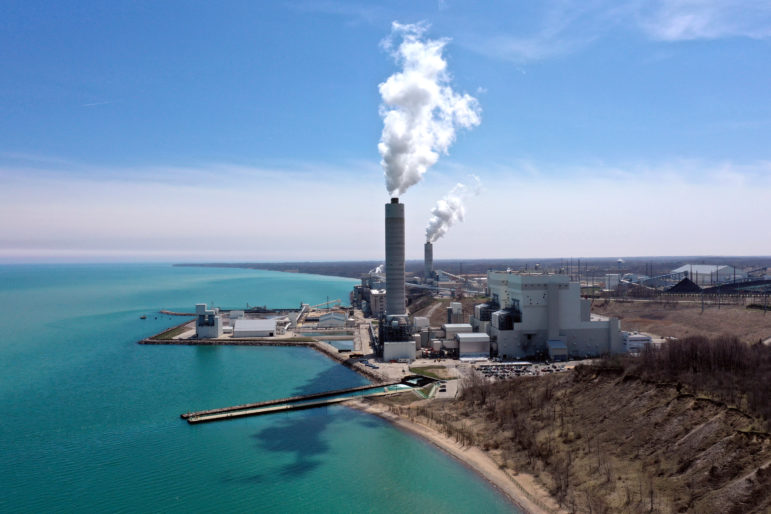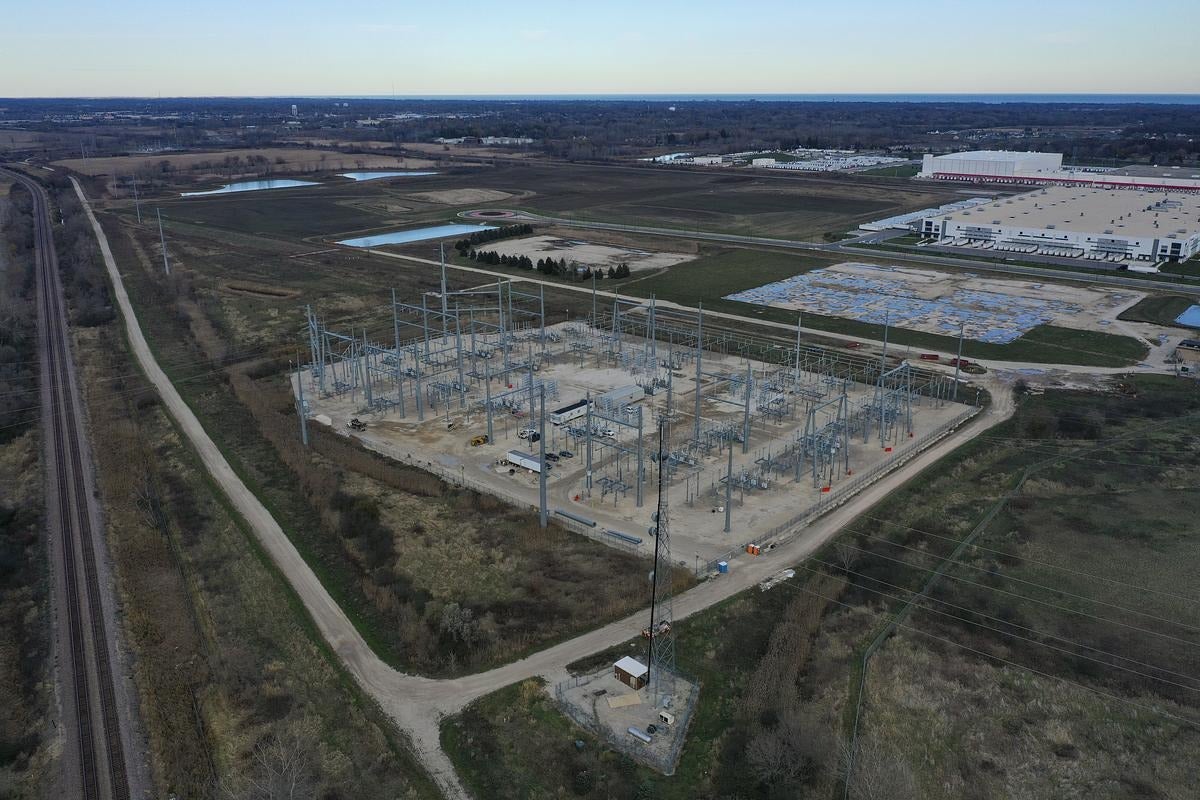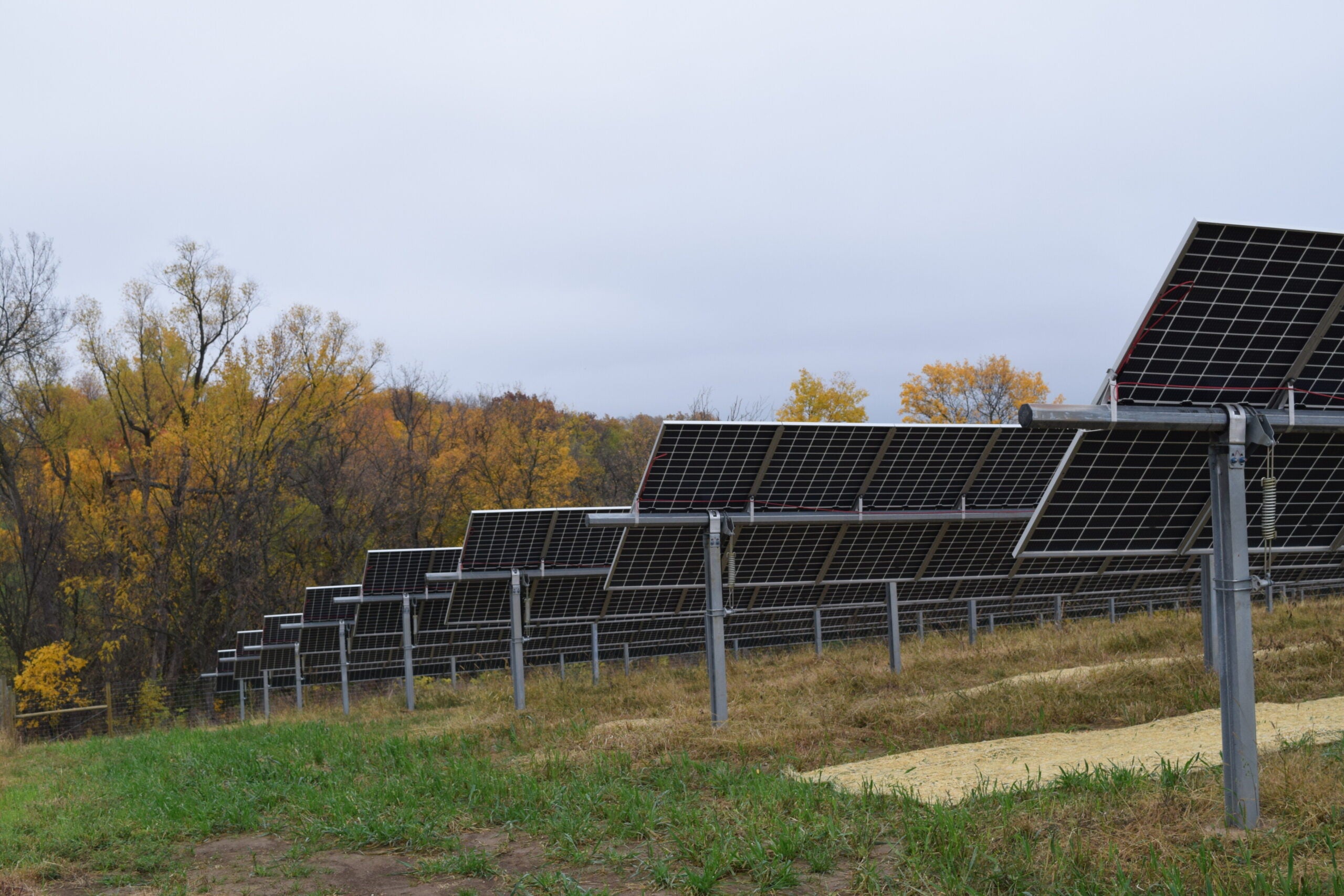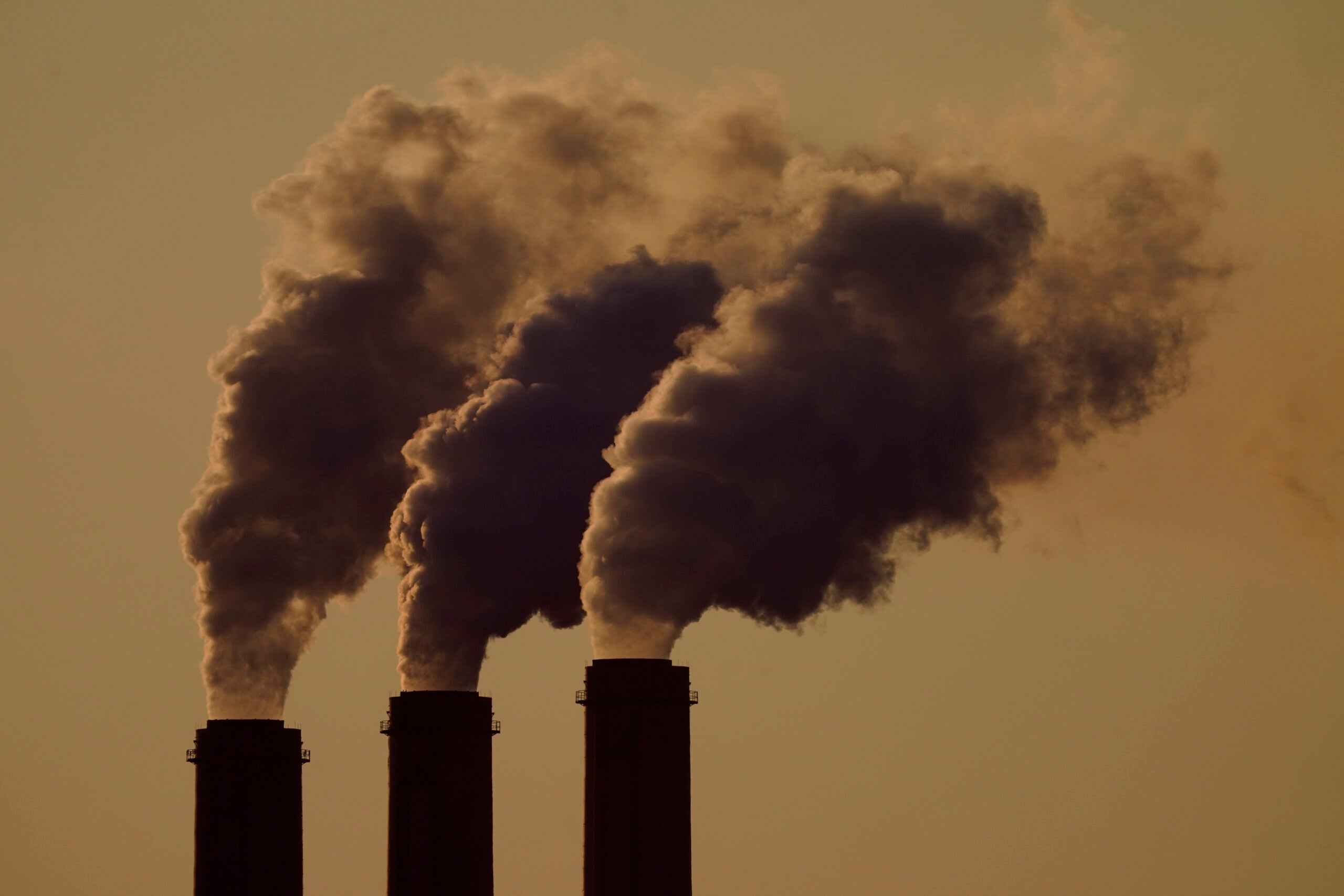A report released by an environmental advocacy group claims most utilities studied aren’t moving fast enough to transition away from fossil fuels and invest in clean energy, including Wisconsin’s largest utility: We Energies.
The Sierra Club examined 77 utilities across the U.S. owned by 50 parent companies to measure their progress on plans to retire coal, end construction of new natural gas plants and build clean energy projects. The group gave utilities an overall “D” grade, or 26 out of 100, for efforts to reduce carbon emissions and combat climate change as part of its third annual report tracking climate pledges.
In its findings, Sierra Club said the 50 utilities that most heavily rely on fossil fuels have only committed to retiring 35 percent of their coal plants and building enough clean energy to replace 30 percent of their fossil fuels by 2030. The group also said those utilities are planning to build 53 gigawatts of new natural gas projects, and only 10 utilities are committed to cutting carbon emissions by 80 percent by the end of the decade.
News with a little more humanity
WPR’s “Wisconsin Today” newsletter keeps you connected to the state you love without feeling overwhelmed. No paywall. No agenda. No corporate filter.
We Energies serves roughly 2.3 million electric and natural gas customers in the state. Elizabeth Ward, director of the Sierra Club’s Wisconsin chapter, said the utility scored 24 out of 100.
“That shows that they’re not on a path to mitigate the worst impacts of climate change and reduce their emissions,” Ward said.
It’s the third year the utility has received a “D” grade from the group, which Ward called “alarming” in light of the $369 billion Inflation Reduction Act. The landmark climate law has provided significant incentives to accelerate the shift away from fossil fuels to clean energy. President Joe Biden’s administration has said it could enable the country to possibly reach 80 percent clean electricity by the end of the decade.
We Energies is retiring units, spending billions on clean energy
We Energies and Wisconsin Public Service, or WPS, are both owned by Milwaukee-based WEC Energy Group. The company has pledged to cut emissions by 80 percent from 2005 levels by 2030, drop coal by 2035 and go carbon-neutral by 2050. So far, the company’s utilities have reduced emissions by about 50 percent.
Ward noted WPS has improved from a failing grade to a “D” this year due to clean energy projects coming online like Two Creeks in Manitowoc County and the first phase of the Badger Hollow solar farm in Iowa County.
Ward said We Energies’ grade went down slightly from last year due to natural gas projects, which the utility argues are necessary to provide reliable power when wind and solar aren’t available. She also noted the company has been examining potential for further delays in retiring coal plants. The utility plans to shutter two units at its South Oak Creek coal plant in Milwaukee County by May 2024 and two other units by late 2025.
Brendan Conway, spokesperson for the utilities, said there have been no changes to We Energies’ timeline for retiring those units. He said some people misinterpreted statements made during a recent earnings call surrounding the utility’s plans as the company evaluates changes to seasonal capacity requirements on the regional grid or Midcontinent Independent System Operator.
“We’re closing older, less efficient fossil fuel plants. We’re investing billions of dollars in new renewable energy in the state of Wisconsin,” Conway said, pointing to solar and battery projects. “All things that are going to benefit our customers in savings, but also lower our emissions in the short-, medium- and long-term.”
Montre Moore, chair of the Wisconsin Environmental Justice and Infrastructure Initiative, said he’d like to see more action behind carbon reduction goals in the short-term.
“It’s one thing to write a fancy goal down, but I don’t really see the muscle to really push it forward,” Moore said. “A lot of the initiatives are pushed out to 2040, 2050.”
He noted research has shown pollution from fossil fuels kills 9 million people each year, and communities of color are disproportionately affected. He’d like to see more education and efforts to lower energy bills based on a percent of customers’ income.
We Energies is currently seeking an electric rate increase of roughly 3 percent as part of the shift to renewables, which would mean that customers would pay around $4 more each month. That comes after rates went up roughly 11 percent for residential customers, or $11 to $12 per month, earlier this year. Conway said customers will save roughly $2 billion over the next two decades as part of the clean energy transition.
Other utilities serving Wisconsin received higher grades
Other utilities in Wisconsin included in the report received higher grades like Wisconsin Power and Light, which is owned by Alliant Energy. Wisconsin Power and Light’s score improved from a “D” to a “B,” according to previous reports released by the Sierra Club.
Alliant is adding nearly 1,100 megawatts of solar generation in Wisconsin, and it placed three solar projects into service last year. Nine other projects are undergoing construction and are set to wrap up next year. Once in service, the 12 projects will provide enough power for around 300,000 homes each year, according to Alliant spokesperson Tony Palese.
“As previously announced, we expect to be out of coal generation in Wisconsin by mid-2026,” Palese said in an email. “We intend to retire our Edgewater Generating Station in Sheboygan by June 2025; both remaining Columbia Energy Center units in Portage will be retired by June 2026.”
Alliant is on track to cut emissions in half from 2005 levels by the end of the decade with a goal of reducing them by 80 percent by 2040. Last year, Xcel Energy achieved a 53 percent reduction in carbon emissions. Xcel was the first major utility to pledge net-zero emissions by 2050.
The report didn’t measure Xcel’s performance in Wisconsin, but the utility received a grade ranging from “D” in Texas and New Mexico to “A” in Minnesota.
“I think we have done more than any other utility in the country to lead the clean energy transition,” said Frank Prager, chief sustainability officer for Xcel Energy. “Moreover, I think the utility industry has done an amazing amount of tremendous things to help reduce emissions across the industry and help meet customer needs.”
Xcel will retire all of its existing coal plants by the end of the decade, and it doesn’t have any operating coal facilities in Wisconsin.
Wisconsin Public Radio, © Copyright 2025, Board of Regents of the University of Wisconsin System and Wisconsin Educational Communications Board.







